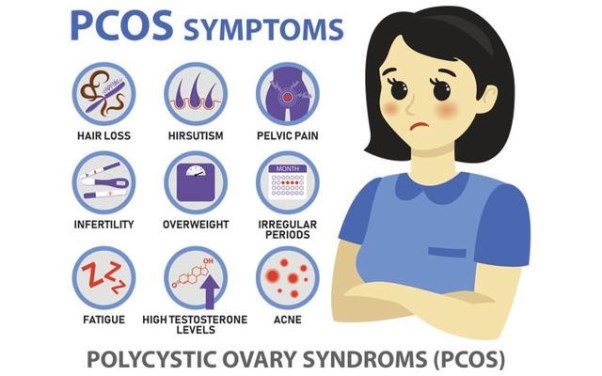Antioxidants are important natural substances that help prevent damage to cells in the body. A huge variety of chemical reactions constantly take place inside the cells in our bodies, and sometimes these reactions form by-products known as free radicals. A certain amount of free radicals are needed by the body; for example, some are used by your body’s immune system to attack viruses or bacteria.

However, if free radicals build up in your body, they can cause ‘oxidative stress’. This can damage your cells and impact your health. For example, oxidative stress can affect your
Antioxidants are able to prevent the negative effects of these free radicals by neutralising them.
Sperm have a special outer layer made up of polyunsaturated fatty acids, which help them penetrate and fertilise the egg during conception. However, free radicals damage this outer layer, and also reduce the sperm’s motility (ability to swim properly). As a result, the fertility of the male is reduced.
An even more significant effect of free radicals is the direct damage they cause to the DNA contained in the sperm. Sperm lack the DNA repair proteins that can stop this oxidative damage, so they are helpless to prevent this occurring. This leads to DNA fragmentation, and the majority of sperm with fragmented DNA cannot mature and fertilise an egg. However, if a sperm cell carrying damaged DNA did manage to reach and fertilise an egg, it is very likely that the resulting genetic mutations would cause a miscarriage or even birth defects. Whilst the likelihood of this occurring is low, we feel it is prudent for men trying to have a baby to reduce activities that increase free radicals in their body, and to take a high quality antioxidant supplement, preferably one that is specific for protecting the health of the sperm.
An increase in free radicals can be due to alcohol consumption, poor nutrition, air pollution, electromagnetic waves, insecticides, and obesity. (One study reported severe abnormalities and molecular alterations in the sperm of men who lived in polluted areas. And recent research showed that the Mediterranean diet helps to improve male infertility and reduce the cancer risk caused by environmental pollutants.)
There are many different types of antioxidants, and they all have a different way of protecting the body. A combination of various antioxidants works best, and ideally the combination should be designed to help prevent the free radical damage to specific cells. (That is why a specific antioxidant formula is recommended by optometrists and eye specialists for people with macular degeneration, for example.)
One of the key antioxidants for protecting sperm is zinc. Zinc supplementation has been shown to protect sperm against oxidative damage, and as a result, improve semen function. For example, when 60 infertile men with abnormal levels of oxidation were given zinc supplements for three months, the oxidised levels within their semen returned to normal. Zinc also helps to increase the number of sperm, so it is beneficial to both the quality and quantity of the sperm. However, zinc is only one of a number of antioxidants needed for healthy sperm, and a trained naturopath will be able to identify which are most important for each individual.
If you are considering having a baby or actively trying to have one, we offer a free Comprehensive Assessment, to help identify
(Terms and conditions: the Assessment is a completely free service, with no obligations whatsoever.)
If you would like to book in for an Assessment, please give us a call on 3376 6911, or you can book online using the link at the top of the page.
Be well, and have a great life!

Unfortunately, hormonal imbalance in women is relatively common. Women of varying ages frequently seek help for hormone related issues: period problems, sugar cravings, fatigue, weight problems, fertility issues, low libido, sleep issues, hair loss, etc. Normally these women have had a blood test and their doctor has advised them that everything is ok. So why are they having their symptoms and feeling unwell?
Your endocrine (hormonal) system is very complex, with various glands that produce a wide range of hormones to control your body. The main ones are your
Often the hormones produced by these glands can affect some of the other glands. This means that you may have symptoms that relate to one particular gland, however those might be caused by a problem with another gland instead. So it is extremely important to understand how the different glands interact with each other.
Your pituitary gland is the main hormonal control-centre of your body. It is a small, pea-sized gland at the base of your brain, in line with the top of your nose.
The pituitary releases some hormones that act on the body directly, but its major job is controlling other hormone-producing glands in the body. It releases
Your thyroid gland controls the rate of activity of the cells of your body. So if your thyroid is overactive, most parts of your body speed up. This can cause a variety of symptoms, such as
If your thyroid is underactive, everything slows down. You could develop
As the name indicates, thyroid stimulating hormone is used to make the thyroid more active. So if your TSH levels are high it means your thyroid activity is too low, and vice-versa. However, the accepted medical range for TSH levels is very broad and often what is considered within the normal medical range is outside of what we at CNTC would consider acceptable. We frequently see women with obvious thyroid symptoms, and yet their TSH levels are within the acceptable medical range (although outside of our parameters).
The most common cause of thyroid problems is excess adrenaline.
Your adrenal glands produce adrenaline, which looks after your ‘fight or flight’ response in times of danger or stress. Adrenaline stimulates the parts of your body needed to escape danger, so :
and non-emergency areas of the body are shut down – such as the digestive system, the immune system, and the reproductive system – as these aren’t needed to escape from danger. (You may have heard of high stress situations causing a woman’s periods to stop altogether.)
The adrenal glands also produce a small amount of oestrogen and progesterone. So healthy adrenal glands are important for the balance of these hormones in the body generally.
(The adrenal glands are particularly important around menopause when the ovaries stop producing their hormones. If we look at oestrogen and progesterone as being like the fuel in a car engine, the ovaries would be the accelerator, which is used to produce more or less of these hormones depending on what the body needs at the time. The adrenals are more like the idle for your engine, which puts a small amount of fuel into the engine to keep it running. If your idle is not working properly, your car engine will be very uneven and erratic when you take your foot off the accelerator. In the same way, if your adrenals are not working well during menopause, your oestrogen and progesterone levels could become unbalanced, causing hot flushes, night sweats, and various other symptoms.)
Another way that the adrenal glands affect your reproductive hormones is that they use progesterone to manufacture cortisol, the stress hormone. So high or prolonged periods of stress can cause low progesterone levels, which indirectly causes high oestrogen levels. As we have seen already, high oestrogen levels cause the liver to produce high levels of TBG, which decreases the production of thyroid hormones to the body.
Your ovaries produce most of your oestrogen and progesterone, which are your main reproductive hormones. We have covered how your levels of these hormones can be affected by your pituitary gland and your adrenals. Some of the other causes of an imbalance in these hormones include:
Another rare cause of reproductive hormone imbalances is a misalignment of the pelvis. If the hips are rotated, or one hip is higher than the other, this can cause pressure on one or both ovaries, effecting their hormone production.
It is clear that the balancing of hormones in the body is complex. It is vital that if a woman is suffering with the symptoms of a hormone imbalance, that the wider picture is taken into account to determine what the underlying source of the problem is.
As with any condition, in order to get results it is crucial to first investigate the cause of the problem. We are currently offering a limited number of free Comprehensive Assessments. (Terms and conditions: the Assessment is a completely free service, with no obligations whatsoever.)
The Assessment helps to identify:
If you would like to book in for an Assessment, please give us a call on 3376 6911, or you can book online using the link at the top of the page.
Be well, and have a great life!

Polycystic ovary syndrome (PCOS) is a common health problem, affecting 8-13% of women of reproductive age. It involves complex hormone imbalances, including excess male hormones and high levels of insulin. The majority of women with PCOS also have high levels of cholesterol and lipids (fats) in their blood.
So PCOS can result in obesity, insulin resistance, inflammatory disorders, and oxidative stress (damage to the cells). Low-grade inflammation also seems to be an aspect of PCOS.
The symptoms can include:
As you can see, the effects on the body can be quite broad.
A systemic review and meta-analysis was carried out on studies into the effect of vitamin E supplements (with or without omega-3 or magnesium) on
10 studies were selected as meeting the strict quality requirements of the meta-analysis. The results of the analysis showed that vitamin E (plus or minus omega-3 or magnesium) significantly reduced
The researchers concluded that Vitamin E can play an important role in dealing with a number of the aspects of PCOS.
For the full study, please visit https://www.nature.com/articles/s41598-022-24467-0#Sec2 .
As with any condition, to get results with PCOS it is always important to treat the causes of the problem. We are currently offering a limited number of free Comprehensive Assessments. (Terms and conditions- the Assessment is a completely free service, with no obligations whatsoever.) These help to identify
If you would like to book in for an Assessment, please give us a call on 3376 6911, or you can book online using the link at the top of the page.
Be well, and have a great life!

There is much more to Vitamin D than strengthening bones. Vitamin D deficiency is common, and there is a huge gap between recommended dietary vitamin D intakes and the low vitamin D levels in the general population. Many different tissues in the body contain receptors for it, and through these receptors it controls over 200 different genes in the body. These genes look after various processes such as metabolism, mineral balance, bone strengthening, and reproductive functions.
There are a number of ways Vitamin D improves women’s fertility.
Vitamin D levels of 30ng/ml in the blood have been associated with higher pregnancy rates in women, as opposed to those with lower levels.
Anti-Mullerian Hormone (AMH) is a hormone produced by cells in the developing egg sacs (follicles), and the level of AMH in a woman’s blood is generally a good indicator of her ovarian reserve. (The test for this is known as an egg reserve test.) Vitamin D stimulates the level of AMH, improving her ovarian reserve.
There are high concentrations of Vitamin D in the lining of the uterus during the first trimester of pregnancy, and this appears to be important for
Studies have found that women with normal levels of Vitamin D are four times more likely to conceive through IVF than those with low levels. In fact, the levels of Vitamin D in the follicles that release the egg are an indicator of how successful an IVF treatment is likely to be. For every extra ng/ml in the follicular fluid, there is an increase in the likelihood of achieving pregnancy by 7%.
Current research also suggests that Vitamin D plays an important role in treating uterine fibroids, which often impact on fertility.
Investigations have also shown that pregnant women with higher levels of Vitamin D had higher live birth rates than those with lower levels.
There has been a significant amount of research on Vitamin D levels and PCOS. PCOS is a reproductive disorder which decreases a woman’s fertility and increases her insulin resistance. Numerous studies have reported low levels of Vitamin D in women with PCOS.
There is increasing evidence that Vitamin D affects both insulin secretion and metabolism, and Vitamin D deficiency may be an important factor that increases insulin resistance in PCOS, especially in overweight women.
PCOS normally involves excess levels of male hormones and menstrual disturbances, and links have been found between low Vitamin D levels and each of these issues in women with PCOS.
In addition, taking Vitamin D supplements by women with PCOS has been shown to
Vitamin D deficiency has been found to result in low sperm motility (swim effectively) and morphology (size and shape). Too little (<50nmol/L) or too much (>125nmol/L) Vitamin D is also associated with poor sperm counts.
Vitamin D is also responsible for inducing the acrosome reaction, an essential part of the sperm and egg fusion during fertilisation.
If you are trying to conceive, are looking to start trying in the next 12 months, or are going through IVF, we recommend having a Comprehensive Brisbane Fertility Assessment at our clinic. The Assessment will look into what is going on in your body, what is causing any problems, and the best way to sort them out. (Terms and conditions- the Assessment is a completely free service, with no obligations whatsoever.)
Be well, and have a great life!
The human body is very complex, so we treat a very broad range of conditions. The following is a list of some of the conditions clients came to us for in a single week.

If you have a health issue and you would like to find out if we can help you, you can book in for a free Comprehensive Assessment. The Assessment will look at what is going on in your body, what is causing any problems, and the best way to resolve them. (Terms and conditions- the Assessment is a completely free service, with no obligations whatsoever.) Have a great life!

Now scientists at the Victor Chang Institute in Sydney have found that a deficiency of a molecule known as NAD is a major cause of women having multiple miscarriages, or babies being born with heart, kidney and spinal defects. This vital molecule is important for normal development of organs, and you can get it by taking B3.
The scientists gave pregnant mice with the NAD gene knocked out a regular dose of B3, and they found it prevented miscarriages and birth defects, over-riding the genetic block. The head of the Victor Chang Institute, Professor Bob Graham, said the discovery could potentially help millions of women around the world.
Studies from the United States have shown up to a third of women have low levels of NAD in their blood and aren’t getting enough B3 vitamin in their pregnancy supplements.
For more information, visit this ABC News Article on the research.
However, please note that
If you are considering starting a family, we recommend seeing one of our Brisbane naturopaths to check you are getting the right levels of B3 and other essential pregnancy nutrients (such as folic acid, iodine, zinc, etc.) in your diet or in your supplements.

Dr Mark Green, a Melbourne University expert in reproductive biology, examined how endocrine-disrupting chemicals (EDCs) could negatively affect reproductive health. In a radio interview he said that chemical exposure to these chemicals could occur from a variety of sources, including the lining of tin cans and receipts.
“Overall there’s probably about 800 chemicals throughout different products that are used through our industry and all our household items. But the main ones you may have heard of, things like BPA,” he said.
“Then we’ve got things called parabens, which are sort of preservatives, those are the ones that are in our shampoos and conditioners, but also in some of our food products.
“The other class [is] probably the phthalates … they’re the things that are making plastics soft and flexible … the ones that are in soft squeezy plastic water bottles or take-away containers,” he said.
He said the chemicals were particularly prone to be ingested if the food contained in the containers was fatty.
“These chemicals love to jump into that food, so over time if we’re consuming low levels of that, then it can be built up in our bodies,” he said.
“We know that people who have high concentrations of these chemicals take longer to conceive, also those people that go into fertility clinics, they’re having even higher levels in their blood and reproductive tissues,” he said.
“Unfortunately … we know that’s going to have downstream effects on their health and their children’s.”
“… It’s really just about education in terms of, don’t leave that plastic water bottle in the sun and then go back and drink it. Or don’t heat your food in those takeaway containers; put it into a bowl and then heat it.”
Basic Ways to Reduce Your Exposure to Endocrine-Disrupting Chemicals
(This article is based on an ABC News item http://www.abc.net.au/news/2017-10-14/reduced-fertility-rates-common-chemicals-food-cleaning-products/9050212 .)
Related articles
Hormone Disruptors https://www.cntc.com.au/fertility/endocrine-disruptors/
Boosting Fertility Naturally https://www.cntc.com.au/fertility/boosting-natural-fertility/
An increasing proportion of men are becoming infertile, with sperm counts declining by more than half between 1973 and 2011. This is according to a review and analysis of 185 different research studies conducted on men in Australia, New Zealand, North America, and Europe. The analysis also showed that sperm counts are continuing their downward tend in these countries.
However, there was no decline in fertility for men from South America, Asia, and Africa over the same period!
The reviewers suggested that the results may be like a “canary in the coal mine” for our society. (Canaries were used in old coal mines to warn when dangerous gases such as carbon monoxide reached a certain level in the mine. These gases would kill the canary before the miners, telling them to leave the tunnels immediately.) They warn that the lifestyle and environmental factors which are gradually destroying our fertility may be damaging our overall health as well. Some of these factors include chemicals such as hormone disruptors and pesticides.
Natural therapists have long believed that many of the chemicals we are now exposed to in our daily lives can have a detrimental effect on our health and fertility. Often low fertility is considered to be due to the female partner, however male fertility problems are becoming more and more common. (For more information on fertility, please read our ‘Boosting Fertility Naturally’ article, or search for ‘fertility’ on our website.)
(Reference: http://www.medscape.com/viewarticle/883370?nlid=116919_4562&src=wnl_dne_170726_mscpedit&uac=153616SR&impID=1397224&faf=1)

‘It was 2005, and after nine months of IVF treatment and a positive pregnancy test, 36-year-old Jill King was having a routine ultrasound to check that all was well. But when she turned to the screen, expecting to see a heartbeat, there was just an empty embryonic sac. In a cruel biological hoax, the sac minus its embryo – called a blighted ovum – was causing positive signs of pregnancy. There were more disappointments to come. By the time she discontinued IVF two years later, King had produced 50 embryos, but no babies, at a cost of about $50,000.
“People talk about the grief of miscarriage, and I’ve experienced that, but to me each embryo was also a potential baby lost,” she recalls. “Whenever I had an embryo transfer [where the embryo is passed through the cervix into the uterus], I’d be calculating when its birthday might be.” …
“My message to other couples is be open-minded about alternative treatments,” says King. …
Some cases of unexplained fertility may have a cause that is overlooked if IVF is used as a first, rather than a last, resort, says Dr Anne Clark, medical director of Fertility First, a clinic in Sydney’s Hurstville.
Being overweight, smoking or drinking too much – even a lack of vitamin D or iodine – can sabotage conception or increase the risk of miscarriage, points out Clark. While the clinic offers IVF treatment, 25 to 30 per cent of couples conceive without it after correcting certain lifestyle factors.
“Women are hammered for being overweight or for smoking, but we know that with men, nine kilograms of extra weight can lower fertility by altering hormone levels,” she says. “We also know that fragmentation of DNA in male sperm is a common cause of miscarriage, and that factors such as smoking, alcohol and possibly caffeine may be contributing.”
Her study in 2008 of 800 men who were attending Fertility First found 58 per cent had sperm damage, but that lifestyle changes and vitamin supplements could help prevent this. “Unlike eggs, which are as old as the woman herself, sperm is freshly made every three months,” says Clark. “Because of this, you can often reverse the problem quickly.”
This was the case for Matthew Lake, a 34-year-old landscaper whose partner, Amanda, had had three miscarriages by the time she was 29. Test results showed she had no obvious problem, but Matthew had fragmented DNA in 33 per cent of his sperm.
At Clark’s suggestion, he reduced his weekly beer consumption from 24 to seven, stopped drinking Coke and took a daily multivitamin. He also took supplements of coenzyme Q10 and vitamins E and C, antioxidants that, according to some research, help reduce sperm damage.
“After six months, the number of fragmented sperm had dropped to nine per cent – a month later I was pregnant,” says Amanda. “I don’t think people realise the problem can often be with the male partner, and that the solution can be simple.”
In Clark’s experience, men are often only asked to provide a sperm sample, and if that is problematic, the couple are directed to IVF rather than addressing a man’s underlying health problems. The pressure of ageing impels couples towards IVF, too, she says.
Francesca Naish, from the Jocelyn Centre for Natural Fertility Management in Sydney, agrees. “People are in a hurry to conceive, but they need to take about three months to clean up first.”
The “cleaning up” regimen recommended by the centre, which employs medical practitioners, naturopaths and an acupuncturist, entails both partners eating whole food – preferably organic – taking herbs and vitamin and mineral supplements, and reducing exposure to environmental toxins.
“Take the example of a hairdresser or a motor mechanic,” says Naish. “She’s exposed to bleaches and solvents, and he’s working with solvents, heavy metals and paints. This doesn’t mean hairdressers and mechanics can’t make babies together, but if their fertility is already compromised, these exposures can make conception – especially of a healthy baby – harder.” Other workers who come into contact with pesticides, such as farmers, may experience problems, too, explains Naish, as can people who spend a lot of time flying (sperm and eggs can be affected by radiation at high altitude). Some studies have linked heavy mobile phone use to reduced sperm count and sperm health. In isolation, these factors may mean nothing, but an accumulation of them, plus increasing age, can make a difference.
Although there’s evidence that the miscarriage rate is higher with IVF, says Naish, “this isn’t necessarily to do with IVF technology, which is fantastic. Miscarriages can occur because other problems aren’t being sorted out first,” she says. “IVF helps sperm and egg to meet and then gets the fertilised egg to the uterus, but it doesn’t solve underlying problems that can impede a pregnancy.”
Anne Clark acknowledges that with IVF offering a monthly pregnancy rate that is two to three times higher than nature, it will always appeal to couples in the stressed-out 21st century. When she recommends waiting until the lifestyle changes kick in, some couples feel pretty thrown to begin with. “But achieving a pregnancy can be a bit like painting a wall.” she says. “It’s all in the preparation.”
The Role of Folate
Dawn Piebenga knew getting pregnant in her late 30s wouldn’t be easy. “I’d had a history of fertility problems in my 20s and early 30s with my first marriage. I was told that it may be because of scar tissue around my Fallopian tubes.”
When a pregnancy in her second marriage ended in miscarriage, she consulted fertility expert Francesca Naish. “Because I was older, I knew my egg quality wouldn’t be as good, so I felt my best shot was to make my body as healthy as possible,” she says.
Tests revealed that Piebenga had a problem shared with about one in eight women: difficulty metabolising folate, a B vitamin that helps prevent some birth defects. At 39 and after four months on a preconception-care program and a high-dose folate supplement, Piebenga got the go-ahead to try to conceive. She became pregnant within a month, and now has a 15-month-old son.
(End of article.)
Natural therapists consider that a woman’s periods can reflect how well her hormones and reproductive system are working. So one of the aims of any course of treatments is to help improve her periods as much as possible, which may include the timing and length of the period, making sure the flow is not too heavy or too light, and treating any period symptoms (in conjunction with normal medical treatment).
Acupuncture
It is becoming more common for our acupuncturists to work in conjunction with medical fertility specialists whilst a woman is undergoing ART (Assisted Reproductive Technologies such as IVF, IUI and ICSI). There is continuing research about how acupuncture can assist with the effectiveness of IVF treatment, and there is also broad agreement by acupuncturists and other health practitioners about using acupuncture in these cases. Please contact our Principal Practitioner if you would like to find out if acupuncture may be able to assist in regard to your specific situation.
The outcome of acupuncture for fertility Brisbane treatments depends on the skill and expertise of the therapist, and on the methods that they use. We only use Japanese acupuncture techniques at our clinic, since when performed by a highly-trained therapist, we have found this style to be more effective that the standard Chinese acupuncture. (All of our acupuncturists were originally taught Chinese acupuncture, but since being trained in the Japanese style they now only use that method.)
Naturopathy
Naturopathy is the use of natural medicines (such as high potency supplements, herbal treatments, diet therapy, etc.) and may be able to assist with many fertility and women’s health issues. Naturopathic medicine involves looking after the chemistry of the body, including improving essential nutrition levels and reducing toxin levels. It aims to improve hormone health, as well as helping to regulate periods, cycle length and ovulation times.
Naturopaths are qualified health professionals with a 4 year degree.
If you are trying to conceive, looking to start trying in the next 12 months, or are going through IVF, we recommend having a Comprehensive Fertility Assessment by our Principal Practitioner. During your Assessment we will identify and explain to you
It is recommended that you and your partner each have an Assessment, and if possible sit in on each other’s appointment. An Assessment is normally $120, but is currently available free of charge. There is no obligation with an Assessment; we simply provide you with information and an understanding of what is happening with your body. Places for a Fertility Assessment are limited, so if you would like to reserve an appointment for you and your partner, please ring or email soon. Please also feel free to contact the Clinic if you would like more information about any aspect of fertility improvement, and we look forward to helping you soon.
[1] http://www.smh.com.au/lifestyle/life/natural-selection-20091221-l9l1.html#ixzz2i8UBRhgM

We usually don’t encounter too many tigers in our lives, instead in our society we often have lots of little stressful situations throughout our day. Rushing to get ready in the morning, fighting the traffic, work pressure, family hassles, money worries, etc. Most of these pressures are based on a fear of not enough, and lack of time is one of the big ones.
In this fast paced age, we hear that every minute counts. Day after day, week after week, all this pressure to achieve, meet goals, finish daily tasks, begins to build up inside of us until one day we are locked in the throes of time pressure. A chief contributor to time pressure is emotional identity. This happens when you invest a great deal of mental and emotional energy in a situation. All that energy can create tunnel vision, leaving you unable to see or appreciate other important things in your life. When someone or something interferes with that focus, the result frequently is irritation, anxiousness and frustration, especially when deadlines must be met. You push people away, neglect other areas of your life, but still proceed until eventually you lapse into emotional chaos. In the end, time pressure can seriously damage not only your relationships and quality of life, but even the situation in which you buried yourself to the exclusion of all else. Time pressure takes a toll on our nervous, immune and hormonal systems, and left unattended will likely produce cycles of anxiety, fatigue and temporary despair. As this process continues it makes us more susceptible to health problems.
Always rushed, too much to do, not enough time; mentally scattered, not feeling in control, tunnel vision, irritation at anyone or anything that breaks your focus, internal pressure, a gnawing feeling in your solar plexus, impatience, lack of compassion for self and others, feeling a constant slow burn inside, low grade stress and strain, feeling disconnected from life, decreased enjoyment of projects, relationships or life in general.
Stress is so common and has such a broad effect on the body that it is often a factor with almost any health problem. However, here are the most common ways it can affect you.
We have already mentioned the physical changes in your body that stress causes, so let’s look at how these can affect your health.
Adrenaline and the other hormones we produce when we are stressed are stimulants. So too much stress over a long time will leave your body drained and depleted, causing you to constantly feel tired or burnt out, and can even lead to adrenal exhaustion or Chronic Fatigue Syndrome.
Short-term stress can be a good thing- it can help stimulate your body and mind so that you can meet a deadline, perform better at sport, or cram for an exam. However, prolonged stress often causes the body to get stuck in the ‘Fight or Flight’ emergency mode all the time. When this happens, the constant mental or emotional stress accumulates in the body, causing the person to feel tense most of the time. Because of this accumulated stress in their body, any stress has a bigger effect on them than usual, and they may react more strongly to situations, so their internal stress builds up even more. Because of this, they may feel they don’t have much control of their life, which can create additional stress for them. Over time, this accumulated stress may manifest as anxiety, depression, poor sleep, irritability, cloudy thinking, relationship difficulties, panic attacks, etc.
When your body is stressed, it puts everything that isn’t directly related to survival on the back burner (like reproduction). Plus, stress and fertility involve many of the same glands and pathways – when stress hormones are being released in the brain, they wreak all kinds of havoc with your reproductive hormones.
Your pituitary gland is the link between your hypothalamus (brain) and your endocrine system (hormones). It communicates with your ovaries through your bloodstream; first, it releases hormones that tell your eggs to mature, and then it releases hormones that cause ovulation. When you’re stressed, the hypothalamus and pituitary gland are engaged in another chain reaction; the hypothalamus releases a hormone called CRH, which causes the pituitary to produce another hormone (ACTH), which in turn triggers the adrenal glands. This stress circuit temporarily shuts down your other hormonal systems, including reproduction, so your body can divert all of its energy into dealing with the perceived threat.
Or, in simpler terms: if your brain is busy with stress, it may not send the right messages to your ovaries, which means you won’t ovulate. If there’s no egg, the sperm have nothing to fertilise naturally, and you won’t fall pregnant. Even if you are still ovulating, some studies suggest that stress can reduce blood flow to the uterus and cause issues with implantation.
We often hear people say that they realise how stress is affecting them, but they can’t do anything about it. They can’t change the way their kids are behaving, they can’t quit their job, the bills keep coming in, etc. They also don’t have time to meditate, exercise or take time out every day. The answer is to clear out the accumulated stress from their body, which allows them to feel calm, relaxed, in control, and not get stressed easily. Usually this involves calming and relaxing the nervous system, and switching it from ‘Fight or Flight’ to the healthier ‘Rest, Repair and Reproduce’ mode. Often we will need to settle the person’s adrenaline levels down as well, particularly if they are feeling tired all the time. Acupuncture and naturopathy are both excellent for correcting the nervous system and the adrenaline levels. (A combination of the two is often ideal.)
If you suspect that stress may be an issue for you, please book in for a free Comprehensive Health Assessment so that we can check and let you know the extent of accumulated stress in your body, as well as the best way to treat it.

Valued at $120, your Assessment will help to uncover:
All this will be fully explained to you, and you can ask as many questions as you like. That way we can be sure to give you all of the right information, understanding and advice you need. Terms and conditions: This is a free, no obligation offer.